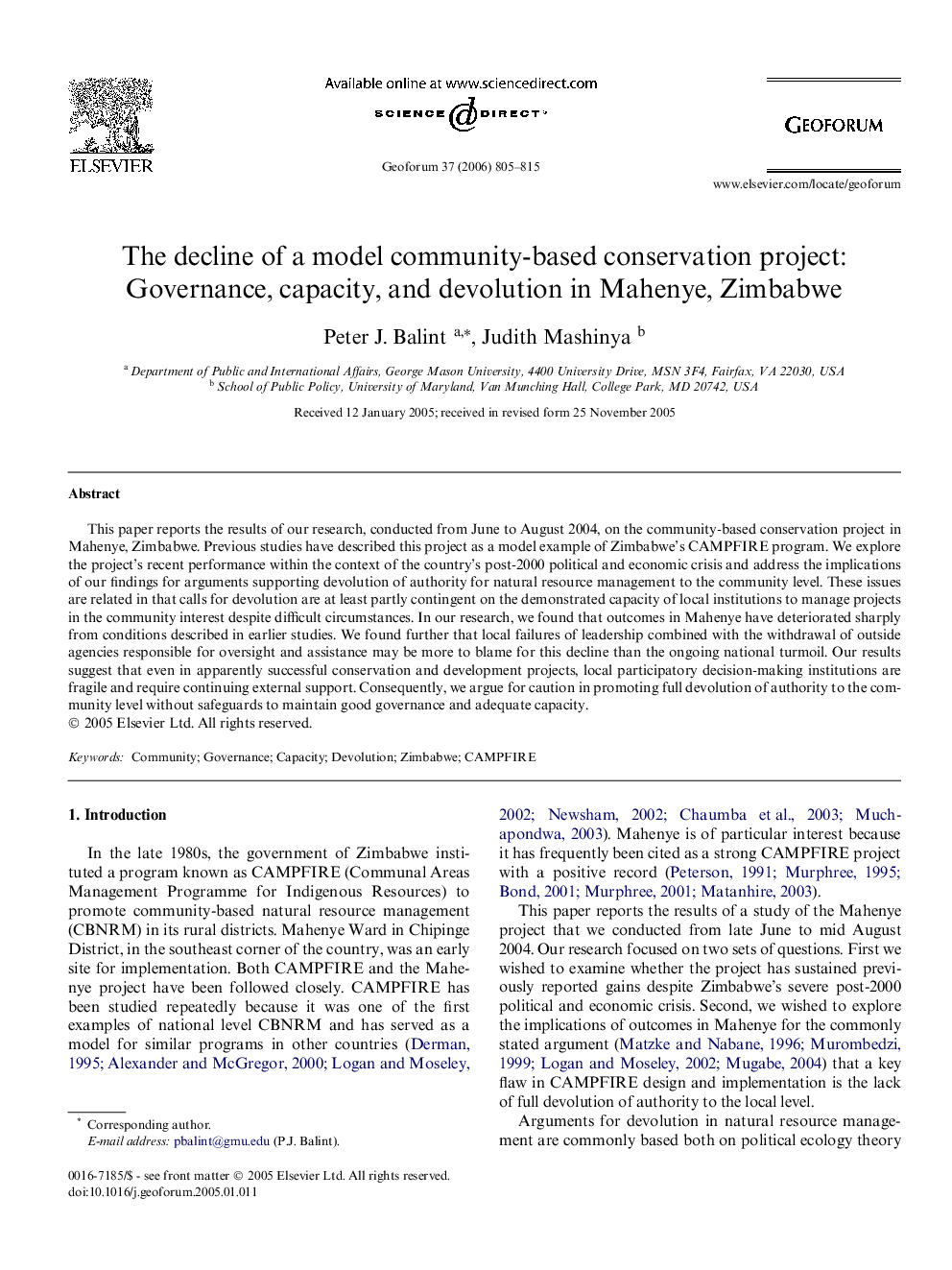| Article ID | Journal | Published Year | Pages | File Type |
|---|---|---|---|---|
| 5075175 | Geoforum | 2006 | 11 Pages |
Abstract
This paper reports the results of our research, conducted from June to August 2004, on the community-based conservation project in Mahenye, Zimbabwe. Previous studies have described this project as a model example of Zimbabwe's CAMPFIRE program. We explore the project's recent performance within the context of the country's post-2000 political and economic crisis and address the implications of our findings for arguments supporting devolution of authority for natural resource management to the community level. These issues are related in that calls for devolution are at least partly contingent on the demonstrated capacity of local institutions to manage projects in the community interest despite difficult circumstances. In our research, we found that outcomes in Mahenye have deteriorated sharply from conditions described in earlier studies. We found further that local failures of leadership combined with the withdrawal of outside agencies responsible for oversight and assistance may be more to blame for this decline than the ongoing national turmoil. Our results suggest that even in apparently successful conservation and development projects, local participatory decision-making institutions are fragile and require continuing external support. Consequently, we argue for caution in promoting full devolution of authority to the community level without safeguards to maintain good governance and adequate capacity.
Related Topics
Social Sciences and Humanities
Economics, Econometrics and Finance
Economics and Econometrics
Authors
Peter J. Balint, Judith Mashinya,
